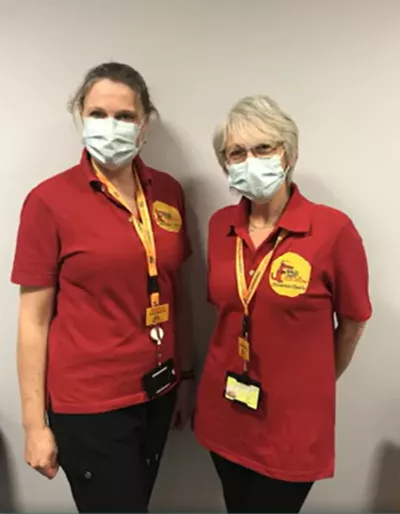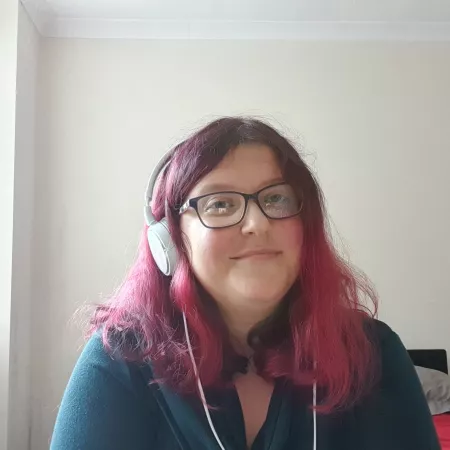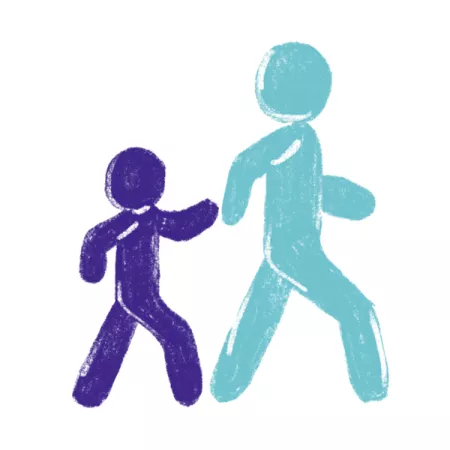
Can you tell us about your roles as Roald Dahl Epilepsy Specialist Nurses and how you support young people with epilepsy?
Liz: Hi, I’m Liz, a Roald Dahl Epilepsy Nurse Specialist at Queen Alexandra Hospital in Portsmouth. My role, established 17 years ago by Roald Dahl’s Marvellous Children’s Charity, involves coordinating care for children and young people with epilepsy. The charity supports seriously ill children and has placed 40 specialist nurses like me across the UK. Transitioning young people to adult healthcare is a major focus of our work, and it’s crucial for their care.
Bex: Hi! I’m Bex, also a Roald Dahl Epilepsy Specialist Nurse, and I work closely with Liz to ensure that young people in my care experience a smooth and supportive transition to adult services.
Transitioning can be a big step for young people. How do you approach this process to make it as effective as possible?
Bex: We involve the child or young person from their very first appointment so that it becomes a natural evolution over time. At each visit, we direct more questions to them, encouraging their independence. We want them to take ownership because it’s their epilepsy, medication, body, and experiences. When we feel they’re ready, we encourage them to come into the clinic room on their own to chat about things like how they’re feeling, how school is going, their hobbies, and future aspirations before we discuss specifics like medication and seizures.
Liz: Often, parents find the concept of transition more challenging than the young people themselves, so part of our role is to support parents through this process as well.
What does the transition process look like at Queen Alexandra Hospital?
Liz: Transition is more than just a single appointment. Here in Portsmouth, we start planning for it from age 11, using a tool called "Ready Steady Go." This prepares the young person for adulthood. Beyond just moving from children’s to adult services, it’s about the young person taking responsibility for managing their condition and making choices about what they want and don’t want. We individualize the process, working at each child’s pace to make sure it’s right for them.
Do you have advice for young people going through this transition?
Bex: Yes, it’s a good idea for them to think about their transition clinic appointment ahead of time and jot down any questions. We also ask them to keep a diary of their epilepsy events and treatment. This can be done in a physical diary or through an app.
What do you love most about being a Roald Dahl Epilepsy Specialist Nurse?
Liz: I love being part of a community. During COVID-19, there’s been a sense of isolation, and that can apply to specialist nursing as well. With Roald Dahl’s Marvellous Children’s Charity, I have both the charity’s support and a network of colleagues across the country, ready to offer answers and support at any time.




